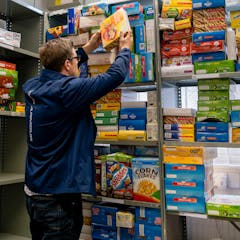
Articles on Landfill
Displaying 21 - 40 of 66 articles

Using recycled plastic to wire planes could reduce their emissions while cutting down on waste from the 3-D printing industry.

The countries of the ASEAN region have important roles to play in tackling the global problem of marine plastic waste.

Of the five cuisines examined, packaging from burger meals was responsible for the most emissions.

Novelty items, candles, pamper products and pyjamas top the list of unwanted Christmas gifts. So why not choose a better, greener option?

Within the growing mountains of electronic waste, precious metals lie waiting to be recovered.

In places where reusable cups are allowed, coffee drinkers, cafe owners and local governments can use insights from behavioural science to discourage use of throwaway cups.

Households generate a large share of national greenhouse gas emissions and can take steps to reduce them.

We are addicted to consumption during these holidays, which leads to a massive amount of landfill waste. Giant retailers like Walmart could help the problem, but they haven’t.

Consumerism reaches a frenzied peak as the holidays approach, but it’s not too late to put on the brakes.

Burning non-recyclable waste to generate energy sounds like a great idea – but incineration plants need an ongoing waste stream to be viable, which perpetuates the make-use-dispose mentality.

An inconclusive COAG meeting comes after years of inquiries, announcements, initiatives, investigations and reviews. Australia is no closer to actually tackling our waste problems.

Australia needs a viable domestic recycling industry – here’s the current state of play.

Festival-goers increasingly treat tents as disposable, imagining they are put to good use when discarded. They’re wrong.

Reducing food waste by feeding hungry Canadians is a simplistic solution that is deeply problematic and morally distressing.

Don’t believe what you read on the label: ‘biodegradable’ bags might not break down in landfill.

China’s refusal to take Australia’s rubbish has started to bite, and it’s clear we’re not ready to deal with the consequences.

There are lots of issues with recycling – but it’s still an important part of society’s efforts to live more sustainably.

Academics from different disciplines come Head to Head in this series to tackle topical debates.

Renovations can create more waste than new constructions – but they don’t have to.

In the EU, 31% of plastic products go to landfill: but a process called “cold plasma pyrolysis” could turn them into clean fuels.
